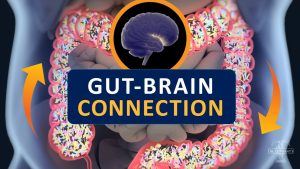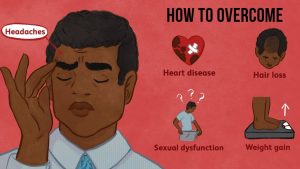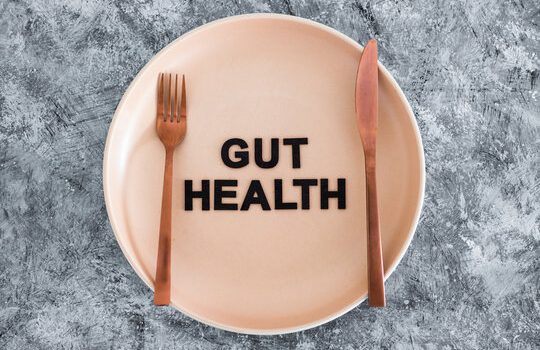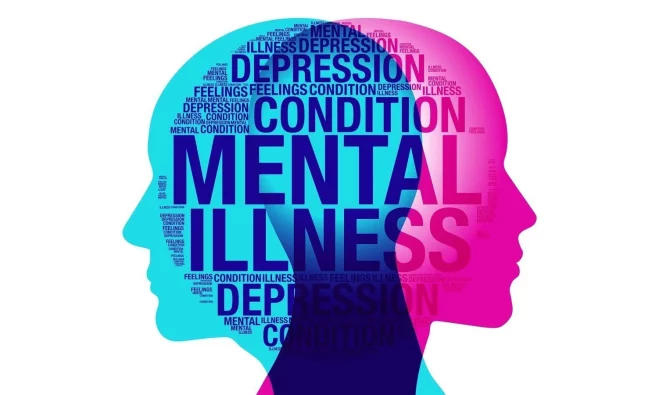
Introduction
The gut-brain connection has become one of the most fascinating areas of research in recent years. While most people think of the gut as just a digestive system, science is revealing much more about how it influences overall health—especially our mood and mental well-being. In 2025, new research continues to uncover the complex relationship between the gut microbiome and emotional health. This emerging field is providing groundbreaking insights into how the food we eat, the bacteria in our gut, and our mental state are closely interconnected. In this article, we’ll dive into the latest findings on the gut-brain connection, explore how gut health can impact mood, and discuss practical tips to improve both.
What is the Gut-Brain Connection?

The gut-brain connection refers to the communication between the gut and the brain, which is facilitated through various mechanisms, including the vagus nerve, hormones, and the gut microbiome. The gut microbiome is the collection of trillions of bacteria, fungi, viruses, and other microorganisms that live in our digestive system. This microbiome plays a crucial role in regulating various bodily functions, including digestion, immunity, and even mood.
In recent years, scientists have discovered that the gut microbiome does not just process food—it also sends signals to the brain. These signals can influence our emotions, stress levels, and overall mental health. Imbalances in gut bacteria, also known as dysbiosis, can have profound effects on mood and may contribute to mental health conditions such as anxiety, depression, and irritability.
1. The Role of Gut Health in Mood Regulation

Research has shown that the gut microbiome has a direct influence on brain chemistry and mood regulation. One of the key ways this happens is through the production of neurotransmitters, which are chemicals that transmit signals in the brain. For example, about 90% of the body’s serotonin, a neurotransmitter associated with feelings of happiness and well-being, is produced in the gut.
When the balance of the gut microbiome is disrupted, it can lead to reduced serotonin production, which may result in feelings of anxiety or depression. New research in 2025 shows that maintaining a healthy gut can help support the production of serotonin and other neurotransmitters that are vital for mood regulation.
Additionally, gut bacteria influence the brain’s response to stress. Studies indicate that the gut microbiome can alter the levels of stress hormones like cortisol, which is often referred to as the “stress hormone.” An imbalanced gut microbiome may contribute to heightened levels of cortisol, leading to increased stress and anxiety. Conversely, a healthy gut can help regulate cortisol levels, contributing to a more balanced emotional state.
Tip: To support mood stability, focus on maintaining a diverse and balanced gut microbiome through a healthy diet, rich in fiber, prebiotics, and probiotics.
2. How Diet Affects Gut Health and Mood

Diet plays a critical role in shaping the gut microbiome and, in turn, our mood. The foods we consume can either promote a healthy microbiome or contribute to gut dysbiosis. Diets high in processed foods, sugars, and unhealthy fats can disrupt the balance of gut bacteria, leading to negative effects on mood and mental health.
In contrast, a diet rich in whole foods, such as fruits, vegetables, whole grains, and lean proteins, supports the growth of beneficial gut bacteria. Additionally, fermented foods like yogurt, kimchi, sauerkraut, and kombucha contain natural probiotics that promote gut health.
Recent research from 2025 highlights the importance of fiber in the diet. Fiber acts as a prebiotic, feeding beneficial gut bacteria and supporting the growth of a healthy microbiome. Foods high in fiber, such as beans, lentils, whole grains, and vegetables, have been shown to improve mood and mental well-being by enhancing gut health.
Tip: Include a variety of fiber-rich, plant-based foods in your diet, along with fermented foods, to help improve both gut health and mood.
3. The Impact of Probiotics and Prebiotics on Mental Well-Being

Probiotics and prebiotics are becoming increasingly popular as part of a healthy gut health regimen, and they play a significant role in supporting mood regulation.
- Probiotics are live bacteria found in certain foods and supplements that help replenish the gut with beneficial microorganisms. Several studies show that probiotics may help reduce symptoms of anxiety and depression by promoting a healthy gut microbiome and improving serotonin levels.
- Prebiotics, on the other hand, are nondigestible fibers that feed beneficial gut bacteria. These fibers are found in foods like bananas, onions, garlic, and asparagus. By supporting the growth of healthy bacteria, prebiotics can contribute to better mental health and emotional balance.
A study published in 2025 found that people who consumed probiotics regularly reported fewer symptoms of anxiety and depression, underscoring the importance of these supplements for mental well-being. When combined with a healthy diet, probiotics and prebiotics may play a key role in enhancing mood and cognitive function.
Tip: Consider incorporating probiotic-rich foods into your diet, or consult a healthcare provider about adding a high-quality probiotic supplement to support mental well-being.
4. The Role of Gut Health in Chronic Stress and Anxiety

Chronic stress and anxiety are increasingly common in today’s fast-paced world. Recent studies suggest that gut health plays a pivotal role in how our body responds to stress. When the gut microbiome is imbalanced, the body’s stress response can be amplified, leading to higher levels of anxiety and tension.
In 2025, new research suggests that restoring balance to the gut microbiome with diet, probiotics, and lifestyle changes may help reduce the impact of chronic stress. Studies have shown that a healthier gut can enhance the body’s ability to manage stress, improving overall emotional resilience.
Tip: Incorporate stress-reducing activities like meditation, exercise, and mindfulness to support both gut health and mental well-being.
5. The Future of Gut Health and Mood Research

As we move into 2025, the connection between gut health and mood is becoming a key focus in mental health research. New technologies and more advanced methods of studying the gut microbiome are allowing scientists to explore how specific bacteria influence brain function and emotional health. Researchers are now looking at how targeted probiotic treatments and personalized nutrition could offer new ways to treat mood disorders and mental health conditions.
In the future, it’s likely that more people will turn to personalized microbiome testing to identify the specific bacteria in their gut and make dietary or lifestyle changes accordingly. This research will continue to reshape the way we think about mental health and wellness, offering more targeted and effective treatments for conditions like anxiety and depression.
Tip: Stay informed about the latest research and consider exploring personalized nutrition options to support your mental health and gut health.
Conclusion
The link between gut health and mood is becoming increasingly clear, with 2025 research providing exciting insights into how our gut microbiome affects Mental Well-Being. Maintaining a healthy gut can improve mood, reduce anxiety, and enhance emotional resilience. By incorporating a balanced diet, probiotics, prebiotics, and stress-reducing practices, you can improve both gut health and mood. As more research unfolds, we will continue to learn about the powerful connection between the gut and the brain, opening up new possibilities for mental health treatments and better overall wellness.










